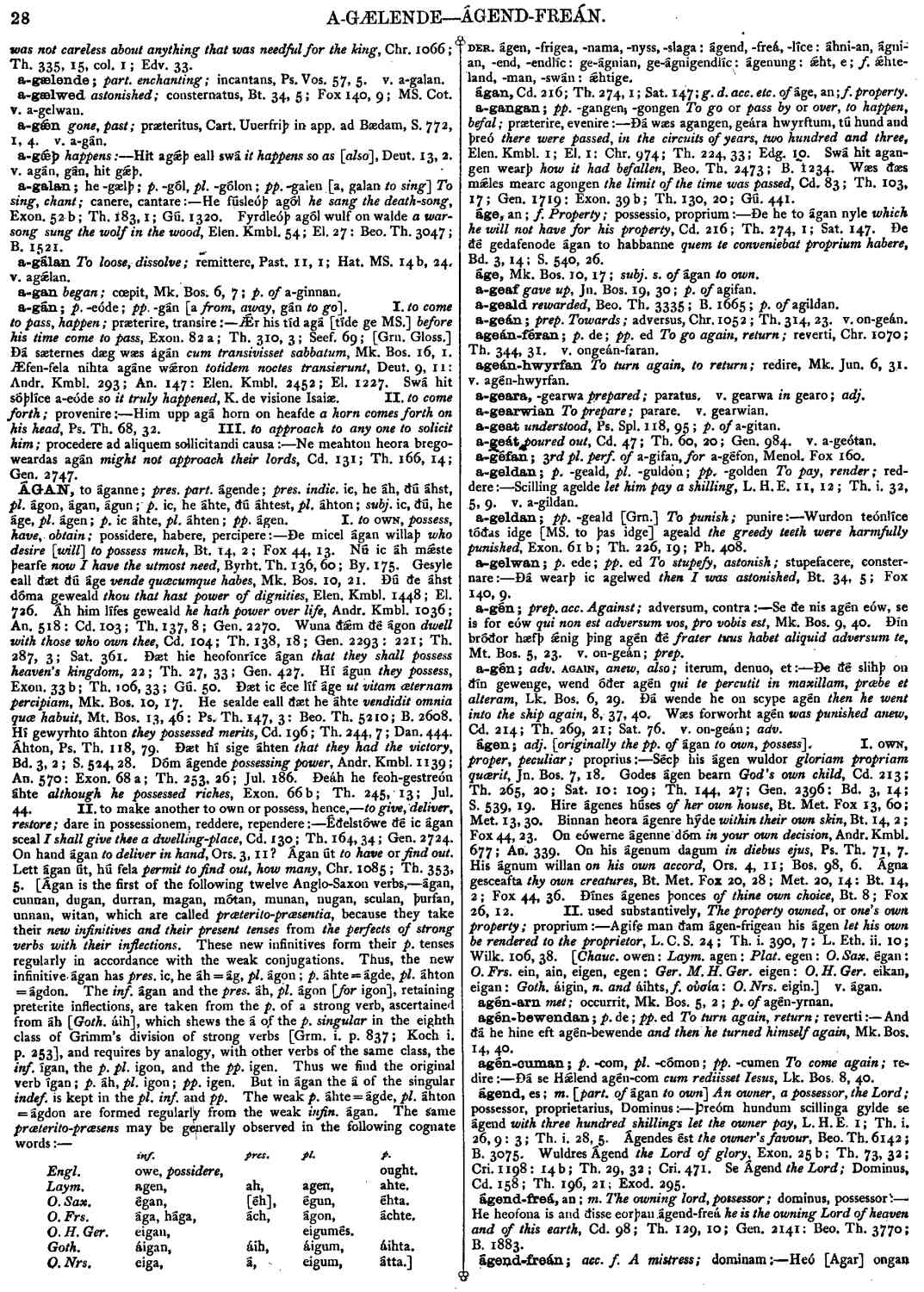a-gán
- verb [ anomalous ]
-
Ǽr his tíd agá [tíde ge MS.]
before his time come to pass,
- Exon. 82 a; Th. 310, 3 ;
- Seef. 69 ; [Grn. Gloss.]
Ðá sæternes dæg wæs agán
cum transivisset sabbatum,
- Mk. Bos. 16, 1 .
-
Æfen-fela nihta agáne wǽron
totidem noctes transierunt,
- Deut. 9, 11 :
- Andr. Kmbl. 293 ;
- An. 147 :
- Elen. Kmbl. 2452 ;
- El. 1227 .
-
Swá hit sóþlíce a-eóde
so it truly happened,
- K. de visione Isaiæ.
-
Him upp agá horn on heafde
a horn comes forth on his head,
- Ps. Th. 68, 32 .
-
Ne meahton heora bregoweardas agán
might not approach their lords,
- Cd. 131; Th. 166, 14 ;
- Gen. 2747 .
Bosworth, Joseph. “a-gán.” In An Anglo-Saxon Dictionary Online, edited by Thomas Northcote Toller, Christ Sean, and Ondřej Tichy. Prague: Faculty of Arts, Charles University, 2014. https://bosworthtoller.com/1182.
Checked: 1